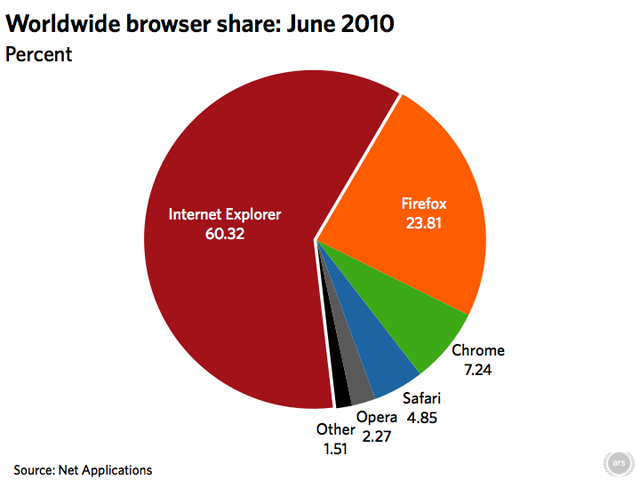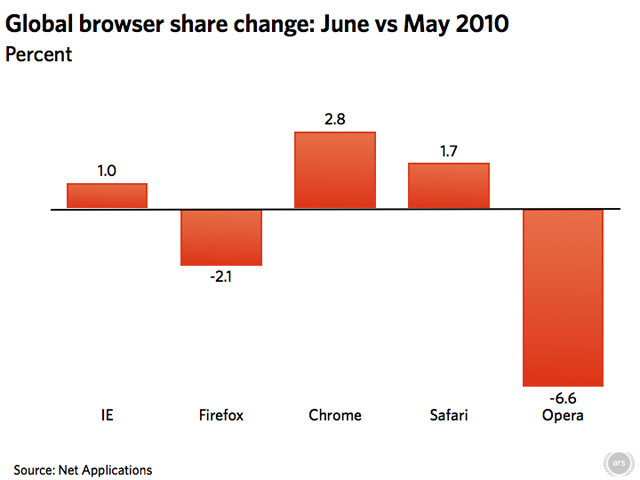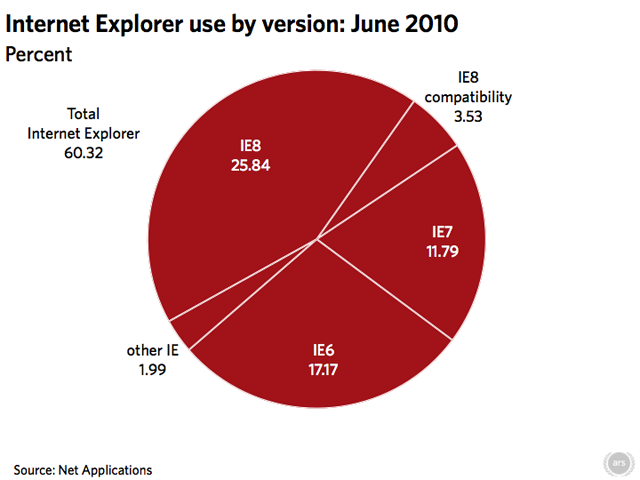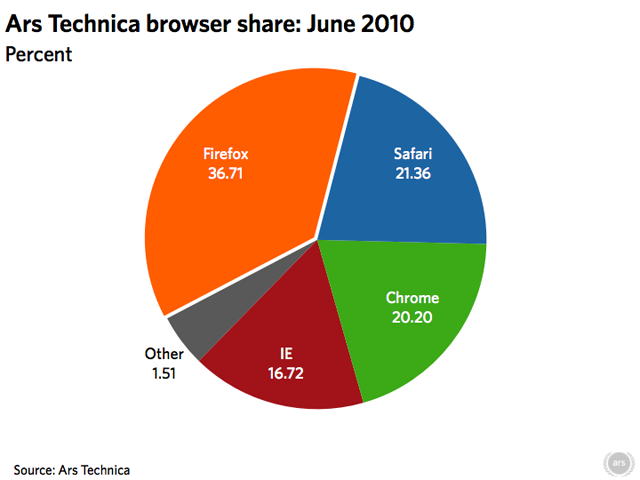
Another month into 2010, and most of the browser trends we've noted over the past several months are continuing: Firefox and Opera remain static, Safari is slowly creeping ahead, and Chrome roars forward at breakneck speeds. But Internet Explorer has reversed itself—and gained market share.
Between May and June, Internet Explorer gained 0.57 percentage points (from 59.75 percent to 60.32 percent). Usually, it's IE losing the most ground.

We've seen IE drop more than one percentage point on multiple occasions, but even though IE's gain is substantial, it's not unheard of to see IE gain share once in a while. Months like this don't usually happen twice in a row, and until we see data for July we can't say that IE's long decline has started to reverse itself.
It may be grinding to a halt, though, given that May's loss was Microsoft's smallest decline in the last year (and IE actually saw positive growth in the US) and now IE is back above 60 percent.
Microsoft noted that the increase may be the result of a marketing campaign that it launched earlier this month to underline how IE8 helps stop online criminals from stealing your information. Since launch, Redmond has had many campaigns to promote IE8's various features, especially the security ones, and while version 8 is the fastest growing browser, its success has not been enough to counter the overall decline of IE thus far.
As for Firefox, the browser has once again moved away from the 25 percent mark, now dropping below 24 percent. We've been blaming Chrome for this trend until now, but this month IE can claim some responsibility.

The importance of being the default browser in the world's most popular operating system continues to boost IE. Microsoft's browser is being used by more than 6 out of 10 people and IE8 is being used by more than one in four users on the Web (quickly closing in to be one in three). The general trend is that IE7 and IE6 are both slowly sliding backwards in share. Unfortunately for Web developers everywhere, IE6's share is not only greater than IE7's, but it actually gained 0.01 percentage points this month. While IE6's share can be attributed to businesses still using customized intranet applications as well as the fact that XP's share is much bigger than Vista's, we suspect the gain isn't accurate, especially since it's so minute.

As always, things at Ars are very different: Firefox continues to dominate, but this month we saw Safari steal second place, pushing Chrome and Internet Explorer into third and fourth places, respectively. Compared to last month, Firefox lost share, while Safari, Chrome, and IE all gained.
reader comments
87